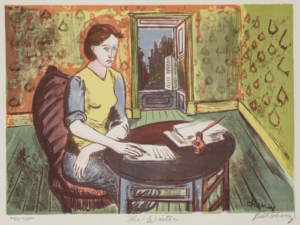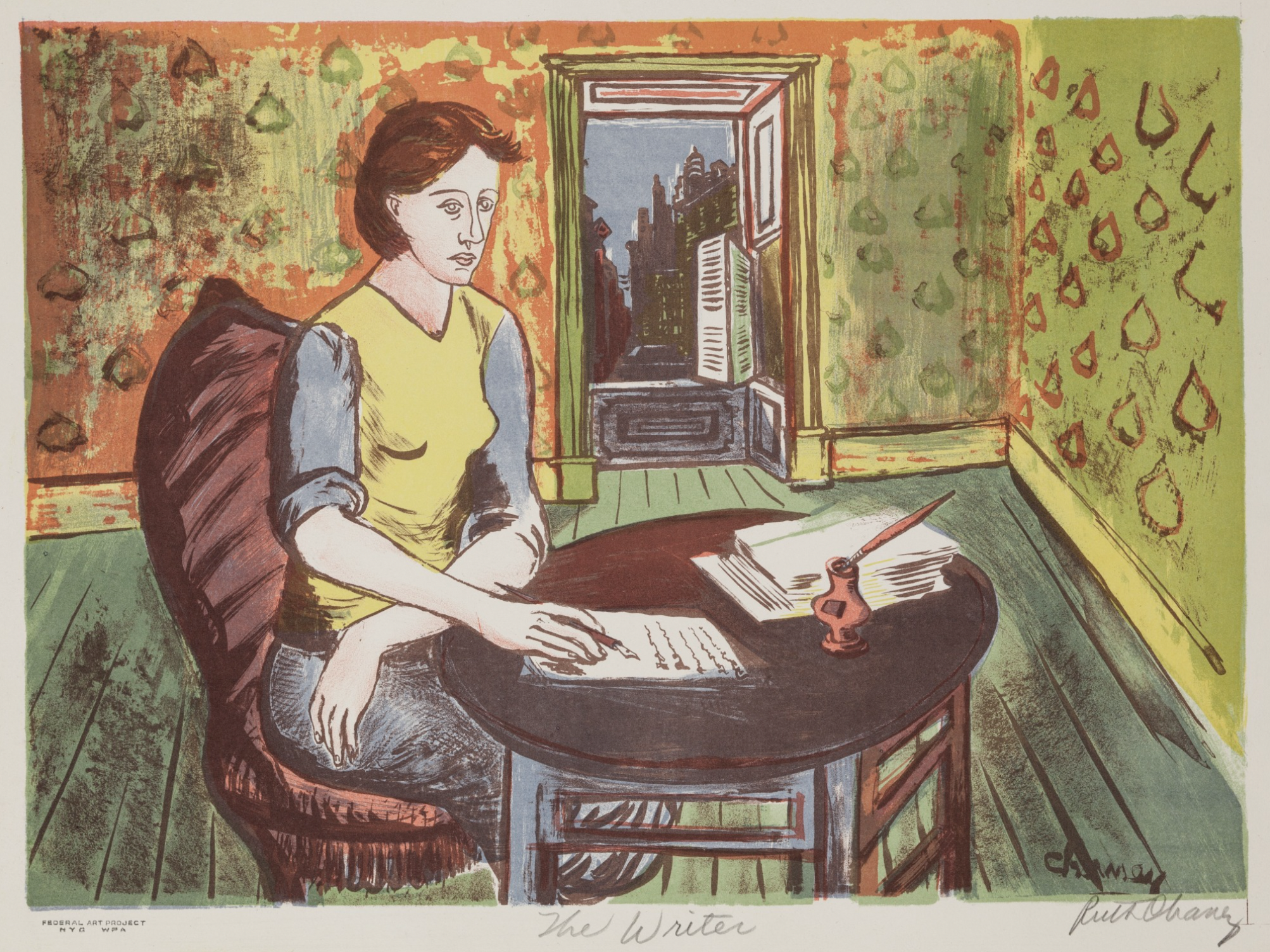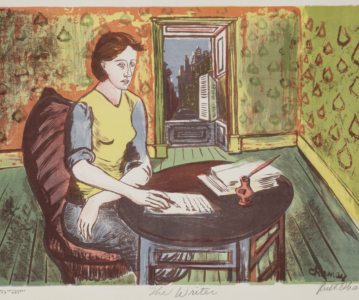Elia Newsom reflects on the struggles and successes they experienced teaching a university course on socialism during the Fall 2023 semester at the University of Colorado Boulder.

Introduction
At the start of this class I was confused about socialism. As most of American society is. I was conflicted between what I had learned about Marx and Marxism in my past classes and all of the times I had been told it failed. I was not aware that in actuality the examples we’ve been told about the cautionary tales of socialism were not examples of true or pure socialism. I’d been told that Cuba was a poor, struggling, tyrannical state where the people were suffering. I had no idea that none of this was true and Cuba was strides beyond American society in many ways. I didn’t understand what unions did or their cultural and historic significance, and I was unaware of the capitalist greed going on within our campus affecting my own teachers. In my position statement I don’t think I was fully aware that so many of the causes I’m passionate about are tied to socialism, universal education, universal healthcare, equality, climate justice, etc. Embarrassingly I did not even understand the concept of private property and what it would mean if the government banned it. I had pictured a dystopian image of a neighborhood with every house identical to the next. All of these mental images that I was indoctrinated to believe around socialism were hard to shake, it took me a while to ditch that mindset and see it for what it is.
Taking this course opened my eyes to the reality of socialism and made me question why it had been censored so much. Although I knew that news was manipulative and every side has their own agenda, I don’t think I fully understood that sources I considered reputable, like the New York Times for example, to be untrustworthy. I didn’t realize this until I used a New York Times article in my first essay that was misrepresenting socialism. Being raised in a liberal place I always associated Fox News, and other conservative sources with manipulation and untrustworthiness. I didn’t really consider the fact that liberal sources also were guilty of this. So many of the changes I want to see in the world are inherently socialist.1
Above is the first section of a final reflection letter written by one of the students who took the course “The Rhetoric & Writing of Socialism” at the University of Colorado Boulder in Fall 2023. This was written by a student with no previous experience with activism, social movements, or socialist organizations. Apart from several YDSA comrades who also took the class, most of the students in the course were similarly bereft of these experiences. But, this student’s response was by no means unique. In fact, this response was standard from several of the students in the class: a turn from vitriolic mainstream liberal or conservative positions on socialism to positive associations if not outright affinity for our ideological commitments. Clearly, something positive took place in this course and it’s worth exploring why and how it happened.
I’ve written extensively in previous articles for Cosmonaut on a socialist position toward higher education and the background of this course. To summarize some of those arguments, I believe higher education is important terrain for class struggle in the United States and that it is the responsibility of socialists learning or working in spaces of higher education to engage in struggles around labor, knowledge production, and the material constitution of the university itself. While there are many productive ways to engage in this struggle, at this moment I am primarily interested in exploring how we can create new spaces for socialists on college campuses. As an instructor, one way I created this space was by developing a writing course with my local DSA and YDSA chapters titled “The Rhetoric & Writing of Socialism.” In this article, I, along with two of my comrades in YDSA, will reflect on our experiences in “The Rhetoric & Writing of Socialism” class, demonstrate the importance of courses like this, and discuss where we can take this action next.
Elia’s Observations
Every semester, students at CU Boulder evaluate their courses and instructors via a questionnaire called the Faculty Course Questionnaire (FCQ). Generally speaking, there are issues with this tool as a method of rating an instructor or course, but they are conducted anonymously. It is logical to not feel swayed by the final reflection I cited at the beginning of this article as it was not written anonymously. However, with the cover of anonymity, FCQs are clearly a good place to look for an indication of what occurred in our course, what students learned, and how they thought, and now currently think, about socialism.
One of the major concerns I expressed in my last article for Cosmonaut was that overt propagandizing could potentially alienate students; or worse, have them actively work against me or the YDSA comrades in the class. Instead, multiple students wrote positively about the course content and classroom environment. To quote one student directly, our class provided “a classroom environment where every student felt comfortable to share their thoughts and opinions.”2 Reading through these qualitative comments, which were submitted by 16 of the 19 students in the class, it quickly becomes apparent that perception of the course was overwhelmingly positive.
Thus, it appears that overt propagandizing does not bother students, and the qualitative comments offer another reason for why this was. First is the importance of creating a positive, laid back classroom environment. This kind of environment was necessary given the contentious topics we covered. In a class where I took seriously the now dated but still applicable call from Students for a Democratic Society (SDS) in 1962 to create a culture of “controversy” and lean into difficult political conversations, we were no strangers to sensitive topics.3 As can be clearly seen in the syllabus, we covered anarchism, the history of socialism in the United States, the efficacy of electoralism, the intersection of feminism and the civil rights movement with socialism, as well as other related topics.4 Students were asked to write a manifesto where they clearly articulated what they thought about the controversial topics we covered in class. I even had an anarchist organizer come to class who talked openly about their confrontations with the police.
However, despite all this controversy, students took everything in stride because we treated one another like human beings. We joked around. We goofed off. I did everything I could to counter the idea of the “professional” college professor who must be detached from their students. Instead, I showed them pictures and videos of my daughter. We took a day to toss a frisbee back-and-forth. We talked about our lives outside the classroom. This created buy-in for the students who weren’t already socialists.
I also de-emphasized grades. As I mentioned in my previous article, even bourgeois intellectuals in my field of writing studies believe that while traditional grading systems discipline students into doing what teachers and administrators want, they don’t help students learn. The political economy of the classroom mirrors the political economy of US society. Just like the wage relationship students experience in their jobs outside the classroom, professors also “pay” students for their work with good or bad grades.5 To return to the FCQs, it is evident that this more “laid back” approach to assessment made the classroom a more positive space for students.6
Unfortunately, while I believe perceptions definitely shifted for students who had ambivalent or negative feelings toward socialism, I have no evidence that taking the course galvanized these students to action despite the many avenues to do so. That said, I was not surprised by this. It’s the old adage: you can lead a horse to water but you can’t make it drink. Perhaps down the line these students will take up the call given our dire national political outlook, but ultimately it is their decision and counterproductive to try to force them into something they don’t want to do.
Apart from the non-socialist students, equally important is exploring what running this class did for Boulder DSA and CU Boulder YDSA. Boulder DSA members had an opportunity to improve their external political education. We had speakers on anarchism, electoral socialism, Cuba, and labor unions. Each of these presenters thoroughly enjoyed coming to give a guest lecture and I’m sure there will be more next time we run the class. We also had productive conversations about how these lectures can be improved, what else we might want to cover, etc. Similarly, coming into this space created more connections between Boulder DSA and CU Boulder YDSA, giving comrades who rarely have the opportunity to interact a new space for mutual sharing of ideas, strategies, and tactics after class.
Rather than put words in their mouths, you will hear directly from CU Boulder YDSA comrades on their experience with the class below.
CU Boulder YDSA Observations
T’s Observations
Going into this class, I was very aware that I was not just a student participating blindly but also a teacher with a goal and a curriculum to teach. I wanted to show everyone in that class that socialism is the way forward, and that future survival and prosperity for our generation requires that all of us work together to build a new world. Similarly to Elia, I was initially very wary of turning folks away from the class by explaining too clearly a socialist work or point in history.
In building this class, I had shirked the norm of the American college student apathy. It’s unheard of to be an undergraduate and involved in how classes are run.
J’s Observations
Taking the “Rhetoric and Writing of Socialism” was incredibly beneficial for me as a student and as a socialist. Prior to the semester starting, I had become casually involved in the CU YDSA, but was by no means educated on socialism or engaged in political action. The class helped bring me closer to other YDSA members and encouraged me to really engage with political texts, most of which were new to me. It was quite powerful to be learning about socialist or student movements of the past in class and then turn around and talk to my comrades about what we could do as an organization to follow in others’ footsteps. This class pushed me to become a more active and involved leftist in my community, and I gained a profound appreciation and respect for the people around me who had already been putting in the work. Learning about socialism throughout history also made me more confident and steadfast in my beliefs, making it a no-brainer to get involved with mutual aid and political action.
The most useful part of the class, in my opinion, was the daily discussions we would have about assigned readings. I learned a lot from my fellow comrades in class discussions and was able to share my “radical” viewpoints in a way I’ve never been able to in a classroom. I certainly got a boost of confidence from being able to freely speak my mind, but this wouldn’t have happened if the classroom was not such a warm and inviting environment. I really felt as if the other students of the class and I formed a little community where we all knew each other decently well and could speak to each other with honesty and respect, which was lovely. This community was undoubtedly fostered by Elia, who encouraged us all on the first day to learn everyone’s name.
The environment of the class was very positive and open. Though the members of YDSA and I greatly contributed to conversations, I would not say that we dominated the classroom. We were able to have really interesting and nuanced conversations with our non-YDSA classmates, which were made all the more personal by the closer-knit nature of the class.
Something that was interesting about the class was the final project in which we had to write a paper highlighting the successes and failures of a socialist group. Me and other YDSA members naturally chose the YDSA, but our report ended up focusing on leftist student groups in general. It may not have been the most productive of a report, as our own organization would dissolve a mere semester later, but I still gained and learned a lot through the process of planning and writing it.
One other beneficial aspect of this class for me was gaining a mentor in our professor, Elia. It was very helpful to be able to talk candidly about the difficulties of organizing, especially as a newbie organizer, with someone who has more experience and knowledge. Though I truthfully have not consulted Elia on much since the end of this class, it has been comforting and empowering to know that there is faculty support for leftist student organizations on campus. I think that the relationships formed in this class among students and between the students and the professor were almost as important as the content we were learning.
Conclusion
Despite our difficulties and setbacks, I would call our class a success. For fifteen weeks, “The Rhetoric & Writing of Socialism” course became a hub for socialists on CU Boulder’s campus. We worked on our political education, shared strategies and tactics, and were in community together. Non-socialists learned about a topic generally treated with disdain by the academy, and student/community socialists learned how to provide political education, organize, and take direct action.
This experiment was not perfect, but it is ongoing. The course will run again next year and there will be new CU socialists helping me plan the class. We are already in the process of making changes to curriculum and classroom assignments. More importantly, we’re trying to get the word out to our comrades in higher education.You’ll see in the footnotes that I’ve attached a syllabus template with major assignments. To my comrades at colleges and universities, be you student, staff, or faculty, please try to replicate what we’ve done. So far, I’ve laid out the practical benefits above but I will dare to write with larger structures in mind.
As it stands, public higher education is a massive, bloated bureaucracy forced to saddle students with mountains of debt to cover the cost of something that should be free and open to all. Upper administrators who make six to seven figures a year make all high level decisions. Students, faculty, and staff, those mainly responsible for the maintenance of the institution, have no control over how it is funded or what direction it should take. Worse, colleges and universities will no doubt be under assault by the incoming Trump administration, who will try to cut funding, destroy politically motivated departments, and privatize as much as possible along the way. We cannot be complacent or, even worse, retreat in this critical moment. Without major structural changes, this institution will simply be a tool of recruitment for the military-industrial complex, serve as a finishing school for the ruling class, or otherwise erode into nothingness.
Even so, the future is not written. Courses like these are the seed for a different kind of higher education. One where decisions are made by students, faculty, staff, and their surrounding communities. Where controversial topics are not stifled but rather spoken about in a safe space where hearts and minds can be won to socialism. Where our stultifying grading system can be thrown away in favor of a true desire to learn. Where students and their teachers can both come just a little bit closer to their own liberation.

- Student Reflection Letter.
- “The Rhetoric & Writing of Socialism” Fall 2023 Qualitative Feedback.
- Students for a Democratic Society, The Port Huron Statement (C.H. Kerr, 1990), 56.
- “The Rhetoric & Writing of Socialism” Syllabus.
- Asao B. Inoue, Labor-Based Grading Contracts: Building Equity and Inclusion in the Compassionate Writing Classroom (WAC Clearinghouse and University Press of Colorado, 2019).
- “The Rhetoric & Writing of Socialism” Fall 2023 Qualitative Feedback.




